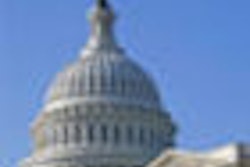The American Dental Education Association (ADEA) said it applauds the healthcare reform legislation signed into law by President Barack Obama on March 23.
"The legislation extends coverage to nearly all U.S. citizens, includes important provisions related to improving their oral health, addresses key issues of importance to academic dental institutions, and is entirely compatible with the Guiding Principles for Health Care Reform adopted by the ADEA House of Delegates," stated ADEA President Sandra Andrieu, Ph.D., in a press release.
The cornerstone of ADEA's position, as approved by the ADEA House of Delegates in March 2009, was that any comprehensive healthcare reform proposal should provide universal coverage to all Americans and access to high-quality, cost-effective oral healthcare services. ADEA called on the U.S. to quickly pass the reconciliation bill, H.R. 4872, to conclude the healthcare reform legislative process.
Listing the provisions in the March 23 bill that fit its agenda, ADEA noted that the bill will:
- Require insurance plans to include pediatric oral health services for children up to 21 years of age
- Require an essential health benefits package to include ambulatory patient services, emergency services, hospitalization, maternity and newborn care, mental health and substance use disorders, prescription drugs, rehabilitative and habilitative services and devices, laboratory services, prevention and wellness services and chronic disease management, and pediatric services, including oral and vision care
- Expand Medicaid eligibility for adults and children
- Increase federal support to states to pay for expanded Medicaid coverage
- Extend the Children's Health Insurance Program (CHIP) for five years
- Establish an oral health prevention program and fund states to develop oral health leadership
- Enhance oral health data systems
- Improve the delivery of oral health
- Implement dental sealant, water fluoridation, and preventive programs
- Establish a five-year national public education campaign focused on oral healthcare prevention and education, and targeted to certain populations, including children, the elderly, and pregnant women
- Award demonstration grants in consultation with professional oral health organizations to eligible entities to demonstrate the effectiveness of research-based dental caries disease management activities
- Authorize the Medicaid and CHIP Payment and Access Commission (MACPAC) to review payments for dental services in Medicaid and CHIP
- Establish a process for updating payments to dental health professionals
- Reaffirm that dentists will be members of the MACPAC
- Establish a separate dental section and funding line of $30 million for training in general, pediatric, and public health dentistry
- Increase eligibility for new grant programs in the Title VII Health Professions Programs to train dental and allied dental health professionals
- Make dental schools eligible for federal grants for predoctoral training, faculty development, dental faculty loan repayment, and academic administrative units (Grants are currently available only to medical schools.)
- Modify current law to allow hospitals to count dental and medical resident time spent in didactic activities toward indirect medical education costs in hospital settings and toward direct graduate medical education in nonhospital settings (dental school clinics)
- Extend the National Health Service Corps and increase funding for its scholarship and loan repayment program by $2.7 billion over five years
- Reauthorize the Indian Health Service and allow for the election by Indian tribes and tribal organizations in a state to employ dental health aide therapists when authorized under state law
- Authorize grants to establish training programs for alternative dental healthcare providers to increase access to dental healthcare services in rural, tribal, and underserved communities
- Exempt dental coverage from the premium amounts subject to excise tax on high-cost insurance plans
Copyright © 2010 DrBicuspid.com



















